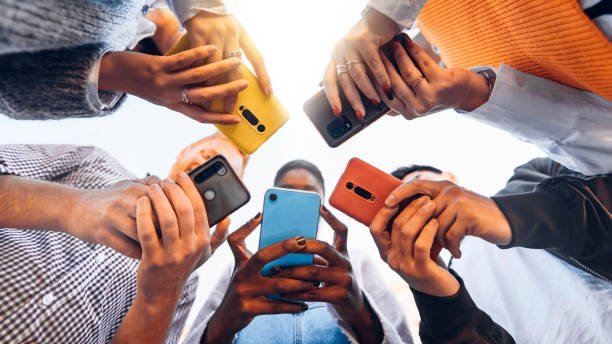Introduction:
Smartphones have become an integral part of modern life, offering convenience, connectivity, and entertainment at our fingertips. However, the increasing reliance on smartphones has raised concerns about their impact on mental health. In this article, we will explore the various ways in which smartphones can affect our mental well-being.
1. Social Media and Comparison:
One of the most significant ways smartphones affect mental health is through social media usage. Platforms like Facebook, Instagram, and Twitter can lead to feelings of inadequacy and comparison as users often showcase curated versions of their lives. This constant exposure to idealized images and lifestyles can contribute to low self-esteem, anxiety, and depression.
2. Addiction and Distraction:
Smartphones are designed to be addictive, with constant notifications, alerts, and a never-ending stream of content. This can lead to excessive screen time, which has been linked to poor sleep quality, decreased productivity, and increased stress levels. The constant need to check notifications and social media updates can also distract individuals from real-life interactions and activities.
3. Fear of Missing Out (FOMO):
The fear of missing out, or FOMO, is a common phenomenon exacerbated by smartphones. Constantly being connected to social media and news feeds can create a sense of anxiety about missing out on important events or experiences. This fear can lead to compulsive checking of smartphones and a heightened sense of stress and restlessness.
4. Cyberbullying and Online Harassment:
Smartphones provide a platform for cyberbullying and online harassment, which can have severe consequences for mental health. The anonymity and distance provided by digital communication channels can embolden individuals to engage in hurtful behavior, leading to feelings of isolation, depression, and anxiety in the victims.
5. Reduced Face-to-Face Interaction:
The convenience of smartphones can also lead to a decrease in face-to-face interactions, which are essential for building and maintaining relationships. Excessive screen time can result in feelings of loneliness, disconnection, and a lack of social support, all of which can impact mental well-being negatively.
6. Blue Light and Sleep Disruption:
The blue light emitted by smartphone screens can disrupt the production of melatonin, a hormone essential for regulating sleep-wake cycles. Prolonged exposure to screens before bedtime can lead to poor sleep quality and insomnia, which can have a detrimental effect on mental health, including mood disorders and cognitive function.
7. Digital Detox and Mindfulness:
To mitigate the negative impact of smartphones on mental health, individuals can benefit from practicing digital detox and mindfulness techniques. Setting boundaries around smartphone usage, taking regular breaks from screens, and engaging in activities that promote presence and relaxation can help restore balance and reduce stress levels.
8. Seeking Professional Help:
If smartphone usage is significantly impacting mental health and well-being, it may be necessary to seek professional help. Therapists, counselors, and mental health professionals can provide support, guidance, and strategies to address smartphone addiction, social media-related issues, and other mental health concerns exacerbated by smartphone use.
In conclusion, while smartphones offer numerous benefits and conveniences, it is essential to be mindful of their potential impact on mental health. By understanding the ways in which smartphones can affect our well-being and taking proactive steps to mitigate these effects, we can strive for a healthier relationship with technology and prioritize our mental and emotional well-being.







